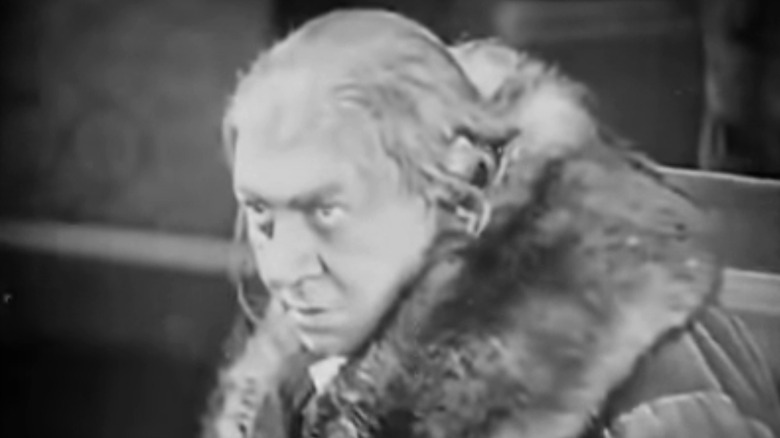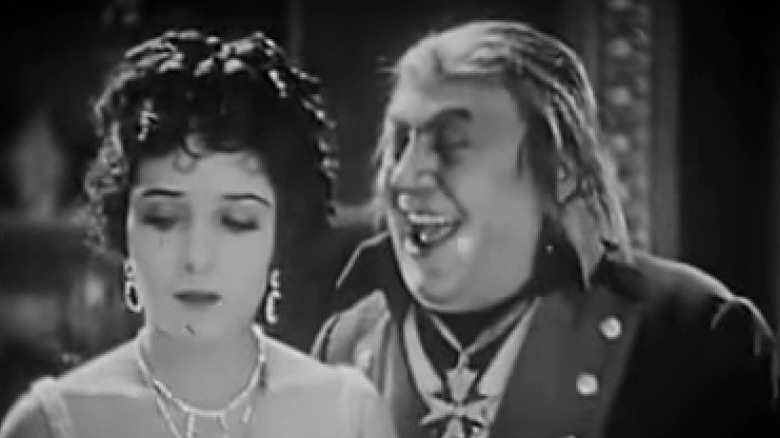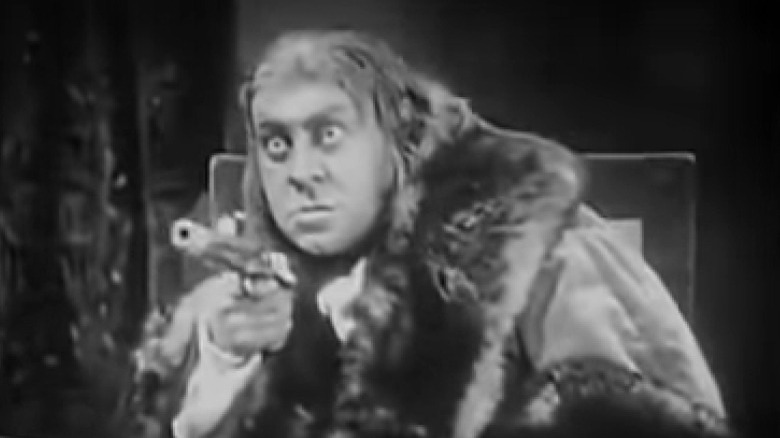There's Only One Best Picture Oscar Nominee That's (Almost) Completely Lost
There's one thing you can say about every single Academy Award nominee: whether they're good films or bad films, beloved or obscure, they are officially in the history books. Future movie lovers will read about them and, often, watch them out of either passionate interest or mild curiosity, decades later.
And that's a very good thing because a lot of the films that are nominated for the Oscars fall into obscurity pretty quickly. We may remember most of the Best Picture winners, for example, but what about the other films in contention? "Casablanca" won Best Picture at the 16th Academy Awards and it's a film most people can quote directly, even if they've never watched it before. But there's a good chance that many of its fellow nominees that same year — films like "The Human Comedy," "The More the Merrier," and "Watch On the Rhine" — aren't nearly as well known today. They benefit from the historical significance of their place in Oscars history and are mercifully still available for viewing whenever movie lovers want to seek them out, but that's not the case for every Best Picture nominee. There's one, just one, that's almost completely lost.
That movie is "The Patriot." (No, not the Mel Gibson one).
Silence was golden
Hollywood has always been quick to jump on new trends, whether it's CG-animated movies, 3D blockbusters, widescreen photography, or synchronized sound. Although there had been films with sound beforehand, the overwhelming success of "The Jazz Singer" — which included scenes with musical numbers and dialogue — had Hollywood scrambling to catch up, and make these so-called "talkies" the industry standard.
You can see how quickly the turnaround came just by looking at the first two Academy Awards ceremonies. The nominees for Best Picture — both categories, since there were two at the first year of the Oscars — were all either silent or mostly silent productions. The nominees at the second Academy Awards were almost all talkies, except one. And that film was the historical epic "The Patriot," the final silent film nominated for Best Picture until "The Artist" (2011), and even that film technically has synchronized sound in it.
"The Patriot" tells the story of the Russian Emperor, Paul I, played by Emil Jannings, who won the first-ever Best Actor Oscar, just one year earlier. Paul I is a dangerous man and prone to irrational violence, so a plot arises to overthrow him. Paul I refuses to believe all the warnings from his loved ones and ends his life in ruin. The film was directed by Ernst Lubitsch — who would become much more famous for his many classic comedies, like "Design for Living," "The Shop Around the Corner," and "To Be or Not To Be" — and co-starred a young Neil Hamilton, who would eventually play Commissioner Gordon in the 1960s "Batman" television series.
"The Patriot" was nominated for five Academy Awards, and won the Oscar for Best Writing, but we'll have to take the Academy's word that it's a great film because it's almost completely lost.
Lost, not found
A number of early films are now thought to be lost. The reasons are many, ranging from the volatility of early film stock — silver nitrate was so flammable that it was used as an explosive plot point in Quentin Tarantino's "Inglourious Basterds" — to intentional destruction for various motives. As a result, many movies are completely unavailable, probably forever.
Even some of the Best Picture nominees that do still exist are rare, and can only be viewed at the UCLA Library. (Those movies, "East Lynne" and "The White Parade," are well worth seeking out if you're in the area.) But "The Patriot" is the only Best Picture nominee that's almost completely lost. Only one reel is known to still exist, but production stills are available, as well as the film's trailer.
There's one other place where you can view footage from "The Patriot," and that's in Josef von Sterberg's classic "The Scarlet Empress," another epic biopic about Russian royalty. The film stars the great Marlene Dietrich as Catherine the Great, who marries the Emperor and eventually overthrows him. The film features an incredibly striking production design, crafting a uniquely hellish environment. Crowd footage from "The Patriot" was used in "The Scarlet Empress," so although it's brief and out of context, at least that one piece of "The Patriot" lives on.
"The Patriot" lost the Best Picture Oscar to "The Broadway Melody," a film that is often considered one of the worst Best Picture winners of all time. The other nominees aren't very popular today, although the film "Hollywood Revue" was recreated briefly in Damien Chazelle's film "Babylon." (It's also worth noting that "Alibi" is very good, and "In Old Arizona" is somewhat delightful, especially for its overtly queer subtext.)
Maybe time would have been kind to "The Patriot," if we could see it. Sadly, we may never know.


